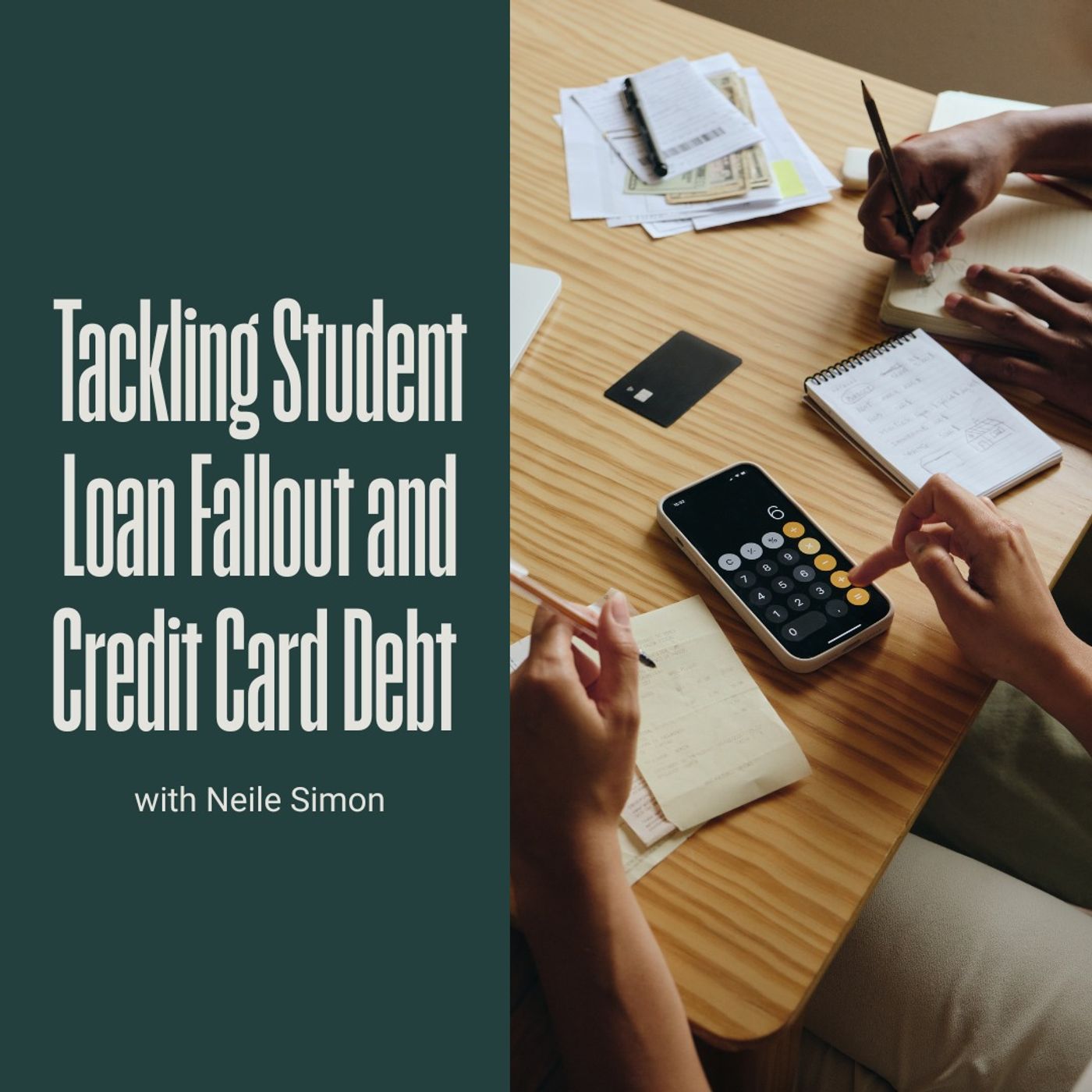Tackling Student Loan Fallout and Credit Card Debt with Neile Simon
- Author
- FaithFi: Faith & Finance
- Published
- Wed 13 Aug 2025
- Episode Link
- https://www.faithfi.com/
Many student loan borrowers are falling behind again, and the impact is more than financial.
A recent change in federal law has reshaped student loan repayment, and as collections ramp back up, millions are seeing their credit scores drop. If you’re feeling the weight of repayment, you’re not alone. Neile Simon joins us today with practical steps to help you regain control.
Neile Simon is a Certified Credit Counselor with Christian Credit Counselors (CCC), an underwriter of Faith & Finance.
Major Changes in Federal Student Loan Repayment
In early July, sweeping legislation restructured federal student loan repayment options. Borrowers now face only two choices:
- Standard Repayment Plan: Lasting 10 to 25 years
- Repayment Assistance Plan (RAP): A 30-year plan with payments based on 1% to 10% of the borrower’s income, with a minimum of $10 per month
While RAP may seem like a helpful tool, the new law eliminated borrower-friendly plans such as the SAVE plan and many income-driven repayment options. For borrowers who are unemployed or experiencing hardship, this is a significant loss. The end of pandemic-era protections, including deferments, has left many unprepared and falling behind.
Adding to the challenge, federal collections resumed on May 5, signaling a firm end to COVID-19 relief. The result? A wave of financial instability.
The Credit Score Crisis
The fallout from these changes has been swift and painful. According to AP News, in the first quarter of this year alone:
- Over 2.2 million borrowers experienced a credit score drop of more than 100 points.
- Over 1 million borrowers experienced a decrease of more than 150 points.
This sharp decline has made it difficult for individuals to secure new credit. Car loans, mortgages, and even rental approvals are now being denied. With limited disposable income, many are forced to choose between paying rent, student loans, or credit cards.
More people are relying on credit cards just to cover essentials like groceries and gas. It’s a cycle that only deepens their debt and financial stress.
How Credit Counseling Can Help
While Christian Credit Counselors doesn’t directly manage student loans, they play a vital role for those overwhelmed by mounting credit card balances. Neely explains how nonprofit credit counseling agencies bring clarity and relief:
- One-on-One Counseling: Certified counselors review your debt, income, and budget
- Debt Management Plan (DMP): Unsecured debts are consolidated into a single monthly payment
- Creditor Negotiation: Lowered interest rates (often between 1% and 12%), reduced monthly payments, and elimination of late fees
- Commitment to Repayment: This is not a loan, bankruptcy, or debt settlement. You repay your full debt—just through a simplified plan.
It’s a way to honor your commitments while regaining control. And once enrolled, your interest rates remain fixed throughout the program.
If you're feeling weighed down by debt, don’t wait. Take an honest look at your budget, explore your options, and don't hesitate to reach out for help. You may feel stuck, but there are real solutions—and people who care.
Christian Credit Counselors is here to walk with you, offering biblical guidance and practical solutions to help you achieve debt freedom.
Visit ChristianCreditCounselors.org to connect with a certified credit counselor today.
On Today’s Program, Rob Answers Listener Questions:
- I’ve paid off my credit cards and car—praise God! Now I’m wondering how to balance my emergency fund and regular savings. How much should I aim for in each?
- I’m reinvesting the interest from a CD. Since I’m not withdrawing the money, do I still need to tithe on the interest?
- My wife is turning 65 but hasn’t earned enough credits for Social Security on her own. Can she start receiving spousal benefits now—and how will that affect her survivor benefits down the road?
- I’m debt-free and contributing 15% to my 401(k), but I only have two months of emergency savings. Should I pause my retirement contributions to build up my emergency fund?
Resources Mentioned:
- Faithful Steward: FaithFi’s New Quarterly Magazine (Become a FaithFi Partner)
- Christian Credit Counselors
- Wisdom Over Wealth: 12 Lessons from Ecclesiastes on Money
- Look At The Sparrows: A 21-Day Devotional on Financial Fear and Anxiety
- Rich Toward God: A Study on the Parable of the Rich Fool
- Find a Certified Kingdom Advisor (CKA) or Certified Christian Financial Counselor (CertCFC)
- FaithFi App
Remember, you can call in to ask your questions most days at (800) 525-7000. Faith & Finance is also available on the Moody Radio Network and American Family Radio. Visit our website at FaithFi.com where you can join the FaithFi Community and give as we expand our outreach.
